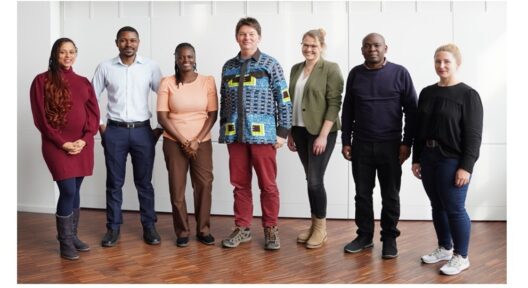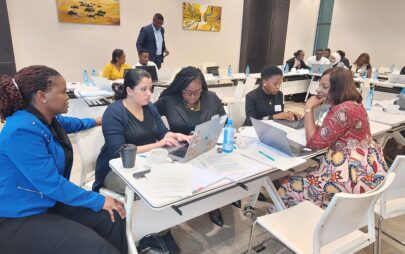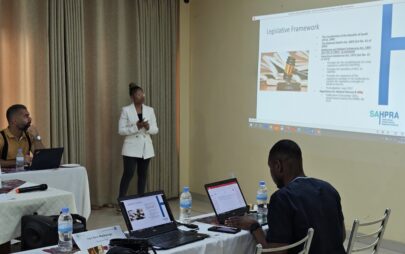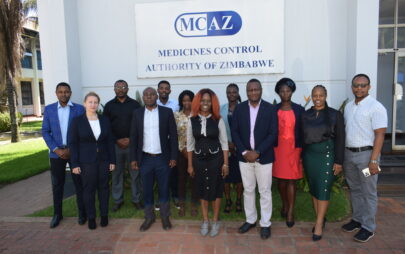BloodTrain Next Generation
Availability, Quality and Safety of Blood and Blood Products in Africa

Context
The availability, safety and quality of blood and blood products is an essential component of any health care system. The WHO has therefore listed them as essential medicines. Blood products are life-saving for many patients, in particular for women with pregnancy-related complications, children suffering from severe anaemia and people with traffic injuries. However, in many African countries, blood and blood products of an acceptable quality are not available in sufficient quantity. To address this issue, it is imperative to strengthen regulatory mechanisms, including for the licensing and inspection of blood establishments, haemovigilance and the licensing of in vitro diagnostics for blood-borne pathogens. In the first phase, the project laid the foundations, introducing benchmarking systems, providing training and working on regulatory documents. BloodTrain Next Generation aims to further expand regulatory capacities in the project countries. To ensure sustainable competence development, the project supports the formation of regional centres of regulatory excellence for blood regulation, where regulators from neighbouring countries will be trained. Working with organisations such as AUDA-NEPAD and AfSBT, the project holds workshops and supports the establishment of pan-African guidelines to enhance the harmonisation of regulatory frameworks for blood and blood products all over Africa.
Objective
Strengthening the regulation of blood and blood products in Africa to increase their availability, quality and safety and to harmonise regulatory requirements at the continental level.
In Cooperation with
- Food and Drugs Authority (FDA), Ghana
- Tanzania Medicines and Medical Devices Authority (TMDA), Tanzania
- National Agency for Food and Drug Administration and Control (NAFDAC), Nigeria
- Medicines Control Authority of Zimbabwe (MCAZ), Zimbabwe
- Zambia Medicines Regulatory Authority (ZAMRA), Zambia
- African Union Development Agency, New Partnership for Africa’s Development (AUDA-NEPAD), South Africa
- Africa Society for Blood Transfusion (AfSBT), South Africa
Thematic priorities
Facts
Activities
-
Training and competence development
Training the employees of national regulatory authorities and blood establishments to ensure blood safety in the blood sector and developing training capacities (train-the-trainer approach) on regulatory mechanisms.
-
Networking and cooperation
Mediating in the development of pan-African guidelines and conducting workshops with regional organisations to promote the harmonisation of regulatory requirements at the continental level.
-
Capacity development
Developing regulatory structures by evaluating the status of the regulatory system and providing technical support to further strengthen it, for example, by developing guidance documents in the project countries.


